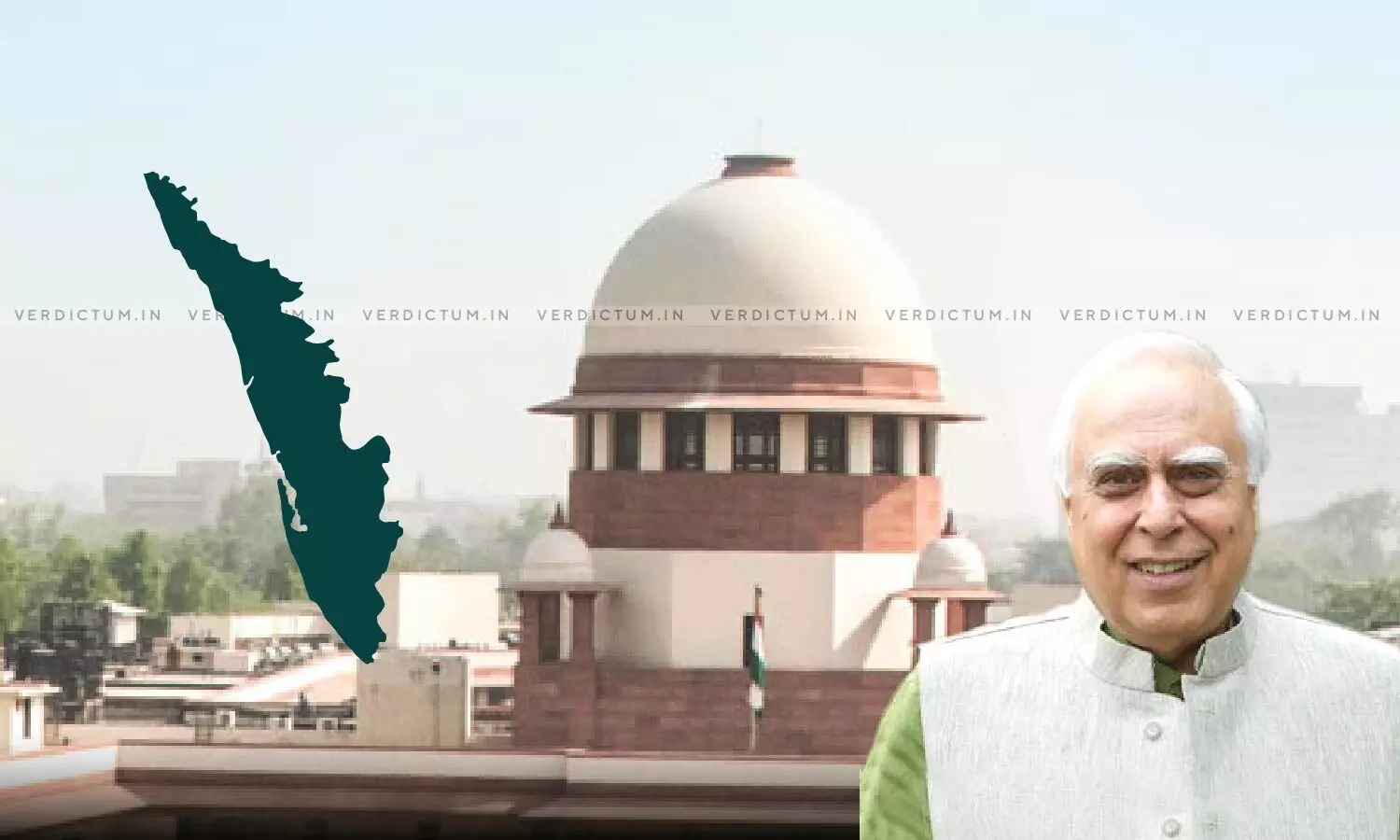
We Have No Possibility Of Manufacturing, Only Source Of Income Is Tourism And IT: Kerala Tells Supreme Court In Plea Challenging Borrowing Limit Imposed By Centre
 |
|During the hearing yesterday of the Suit filed by the State of Kerala against the Union Government challenging the restrictions imposed on its borrowing capacity, it was argued by Senior Advocate Kapil Sibal on behalf of Kerala that the State has no possibility of manufacturing and that the only source of income for the State is Tourism and Information Technology.
"Compare it to a State like Kerala. High density of population, no possibility of manufacturing. The only source of income is Tourism and IT. Those are the only sources of income. Therefore, you need to get people educated. You need to ensure, basically, human capital, which is a source, ultimately of progress", Kapil Sibal argued.
After the hearing, the Bench of Justice Surya Kant and Justice K.V. Vishwanathan urged the State and the Union to try and resolve the difference through discussions and adjourned the matter while granting liberty to parties to mention the matter after discussions.
Kapil Sibal started his submission on behalf of the State by saying, "I just want to say at the outset that I stand here with a heavy heart because matters of this nature should actually be resolved in the spirit of federalism and cooperative federalism. But, given the situation that the State is in, we have no choice but to agitate this matter. I just want to clarify a couple of points".
He clarified that the State does not intend to seek allocation of funds from the Union. "I do not wish your lordships to decide as to what amount of money should be given to me. That is far away from the exercise that I wish to conduct. There are certain constitutional principles involved which your lordships will have to settle. At the moment, we are only on interim relief. So I will demonstrate to your lordship my prima facie case, the balance of convenience and irreparable injury. But let's move away from this and let me tell your lordships in what fashion I am going to persuade your lordships to pass orders in our favour", he submitted.
He submitted that are living in a Country where the financial landscape is as diverse as its political landscape. "It is as diverse as its cultural landscape", he submitted.
"In the past, has there been any Suit by any State like this?", Justice Surya Kant then asked.
No, it is the first of its kind, very unique, and there is a reason for it, Sibal replied.
"Economic landscape is as diverse as its cultural and political landscape. If you look at the entire Union, you take the state of Uttarakhand. Now nature of the State of Uttarakhand or the state of Himachal, a hilly state, there is no real agriculture, there is of course hoticulture, very little manufacturing will take place. Compare it to a state like Arunachal Pradesh, the issues are entirely different. Compare it to a State like Kerala. High density of population, no possibility of manufacturing. The only source of income is tourism and IT. Those are the only sources of income. Therefore, you need to get people educated. You need to ensure, basically, human capital, which is a source, ultimately of progress. You compare that to Maharashtra, a revenue earning State, a manufacturing State, Stock Market is booming, the biggest factories are there, the biggest industrial houses are there", Sibal submitted on behalf of the State.
He continued, "So the point that I am making is the nature of the economy of each State and therefore the budgetary considerations in each State are entirely different from any other State. It is influenced by local factors, local needs. Which is why, if you look at the constitution of India, you will realise that the powers and responsibilities of the Union and the States are symmetrical. There is no asymmetry in those powers and responsibilities".
During the hearing, Justice Surya Kant remarked that the entire world recognises India as an economically robust country and that the same is felt while travelling abroad.